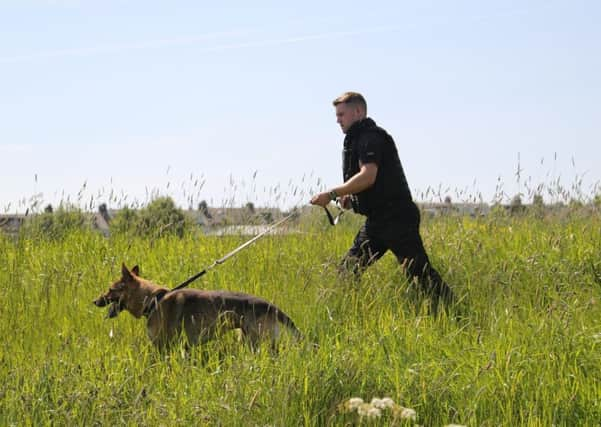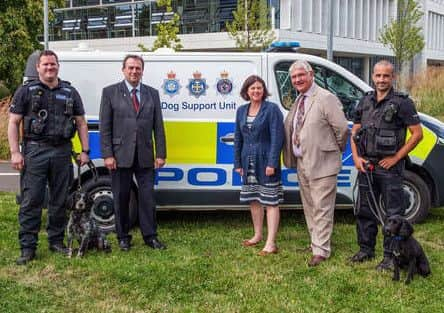North Yorkshire dog unit merger comes into force today


The launch of the new police dog service across North Yorkshire Police, Cleveland Police and Durham Constabulary is designed to increase coverage in rural areas and give each force access to more police dogs per shift.
Although Cleveland Police and Durham Constabulary had already been sharing a dog unit, in October last year the Police and Crime Commissioners and Chief Constables of the three forces decided on a three-way merger.
Advertisement
Hide AdAdvertisement
Hide AdWhen the proposals were announced last October it was claimed the move would save the three forces more than £3m over five years.


The scheme is said to give the forces greater access to specialist police dogs, such as passive drugs dogs, which are typically used in town and city centres to identify people carrying drugs.
It is part of the Evolve Programme, where North Yorkshire, Durham and Cleveland hope to improve services and save money by collaborating across borders.
North Yorkshire Police chief constable Dave Jones, who has recently returned from a spell as temporary chief constable at beleaguered South Yorkshire Police, said: “From today our police dogs will be trained in the same way, and will adopt the same operating tactics, across all three police service areas. That means we can deploy more dogs, and work more effectively across a wide geographical area. That is good news for the service and bad news for criminals.”
Advertisement
Hide AdAdvertisement
Hide AdThe announcement in October came two days after it was revealed that the dog units run by South Yorkshire Police and Humberside Police would be combined, leaving 13 dogs to cover South Yorkshire.


Later in the year, police forces nationwide received a better-than-expected funding settlement from the Government in George Osborne’s Autumn Statement, prompting many to reconsider cost-cutting plans.
It was claimed last year that part of the move, dog handlers in North Yorkshire will fall in line with their counterparts by working 12-hour shifts, a change from their current variable pattern with shorter shifts.
Mike Stubbs of North Yorkshire’s Police Federation, which represents rank and file officers, said at the time that it had “serious concerns about the move to 12 hour shifts”.
Advertisement
Hide AdAdvertisement
Hide AdNorth Yorkshire police and crime commissioner Julia Mulligan said: “Police dogs are a really important part of policing both urban and rural communities, and fundamentally, this merger gives us access to more dogs and will in turn mean a better service for the public.
“Not only is the service better, but North Yorkshire saves £172,000 a year by working better with our neighbouring forces.”